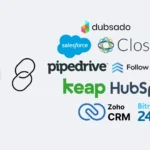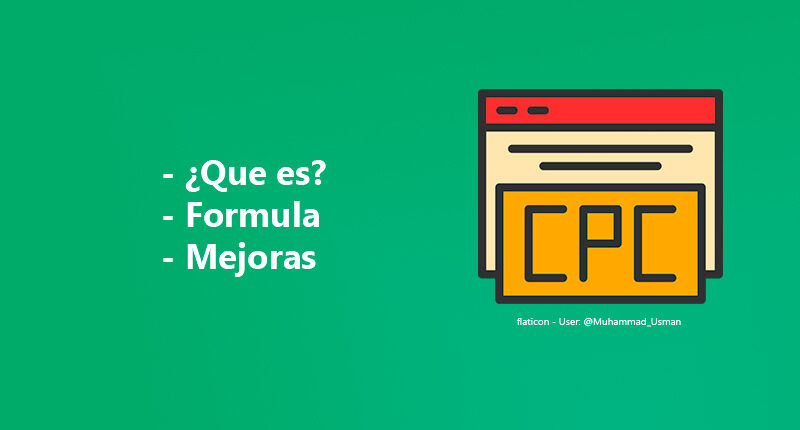Email marketing is a form of direct marketing that is carried out through emails. This is a strategy widely used by companies to build customer loyalty, as well as to attract new prospects.
Article index
Although many people think that email marketing is obsolete, because it emerged with the Internet, the truth is that it is one of the most effective marketing techniques that exist. And, according to data from the Direct Marketing Association, email marketing generates an ROI (return on investment) of 4,300%. That is, for every dollar invested in this strategy, 43 dollars are obtained.
What is email marketing?
Email marketing is a form of direct marketing that is carried out through emails. It involves sending commercial messages to a group of people with the aim of promoting interest in a product or service.
Email marketing has become one of the most effective strategies to reach potential customers directly. Thanks to technological advances, today it is very easy to create and send mass emails.
There are different types of email marketing, from the simplest to the most sophisticated. In general, you can send newsletters, special offers, promotions, coupons, etc.
For email marketing to be effective, it is important to have a good contact database. It is also necessary to create attractive and relevant messages for the target audience.
Email marketing can be very effective if done correctly. However, it is important to keep in mind that email is still a personal medium, so you must be careful not to send spam messages or messages that may be annoying to recipients.
What advantages does email marketing offer?
Next, we are going to list some of the main advantages that email marketing offers over other marketing strategies:
- – It is a very economical form of marketing: to be able to carry out an email marketing campaign you only need a good database and email sending software.
- – It is a very effective form of marketing: according to data from the Direct Marketing Association, email marketing generates an ROI of 4,300%.
- – It allows you to measure and analyze the results: unlike other marketing strategies, email marketing allows you to very easily measure the results of the campaign. For example, we can know the number of people who have opened the email, the number of clicks on the links, etc.
- – It offers great versatility: email marketing allows you to carry out very diverse campaigns. For example, we can send promotional emails, loyalty emails, lead capture emails, etc.
- – You can segment the database: another of the great advantages of email marketing is that it allows you to segment the database to send more personalized emails. For example, we can send an email only to those people who live in Madrid or who have purchased a certain product.
How does email marketing work?
How email marketing works is very simple. It involves sending mass emails to a contact database. To do this, the first thing you need is to have a contact database. This database can be your own or you can buy it from a specialized provider.
Once you have the database, the next thing you need is email sending software. There are many email sending software on the market, but it is best to use a paid one, as they offer a better service and better features.
Once you have the email sending software, the next thing you have to do is create the email that you are going to send. To do this, you can use a text editor such as Microsoft Word or an HTML editor if you have programming knowledge.
Once you have the email ready, the next thing you have to do is schedule the sending. In most email sending software you can schedule the sending to take place on a specific date and time.
What types of email marketing exist?
There are different types of email marketing, depending on the objectives pursued with the campaign. Next, we are going to list some of the main types of email marketing:
- – Promotional email marketing: it involves sending emails with offers and discounts to attract new customers or retain existing ones.
- – Loyalty email marketing: it is about sending emails to enhance the relationship with customers and build their loyalty.
- – Email marketing to capture leads: it is about sending emails to attract new potential customers.
- – Email content marketing: it is about sending emails with interesting and valuable content for the recipients.
How can you measure the success of an email marketing campaign?
To measure the success of an email marketing campaign we can use various metrics. Next, we are going to list some of the main metrics that are usually used:
- – Opening rate: this is the percentage of people who have opened the email.
- – Click rate: this is the percentage of people who have clicked on a link in the email.
- – Bounce rate: this is the percentage of people who have opened the email and have left the website without taking any action.
- – Conversion rate: this is the percentage of people who have performed a certain action, such as buying a product, subscribing to a newsletter, etc.
Why use email marketing?
There are many reasons why email marketing can be a good option for your business. Some of the main advantages are:
- – It is an effective way to reach a specific group of clients and potential clients.
- – You can send personalized and relevant messages to your recipients.
- – Email marketing can be very cost-effective, especially when compared to other types of advertising and marketing.
- – You can accurately measure the success of your email marketing campaigns, allowing you to improve and adjust your strategies in the future.
How can you do email marketing?
There are many ways to do email marketing, but some of the most common ways are as follows:
- – Sending newsletters by email: This is a very common way to do email marketing, and it consists of sending periodic newsletters to your subscribers. Newsletters can contain information about products or services, promotions and coupons, events, or simply to keep in touch with customers and subscribers.
- – Sending promotional messages by email: Promotional messages are an effective way to announce special offers and discounts to your subscribers. You can also use this type of email to announce new products or services.
- – Sending follow-up messages by email: Follow-up messages can be very useful for maintaining contact with customers and subscribers. You can send follow-up messages after you make a sale, or after an event or activity. You can also use this type of email to ask your recipients questions and get feedback.
What tools are needed to do email marketing?
To do email marketing effectively, you need some specific tools and software. Some of the most common tools are the following:
- – A subscriber list: The subscriber list is one of the most important tools for email marketing. The subscriber list should contain the emails of people who are interested in what you have to offer. You can create your own subscriber list through your website or blog, or you can purchase subscriber lists from third parties.
- – Email marketing software: Email marketing software will allow you to create and send your email marketing campaigns. There are many email marketing software available, so make sure you choose one that fits your needs and budget.
- – An email template: The email template is a useful tool for creating your email messages. Email templates allow you to create professional and attractive email messages without needing to hire a designer. There are many email templates available for free or for a fee.
- – A tracking tool: The tracking tool is another important tool for email marketing. The tracking tool will allow you to track and measure the success of your email marketing campaigns. This will help you adjust and improve your strategies in the future.
How to make an email marketing plan?
Do you want to know how to make an email marketing plan that works? If you are in the digital world, it is very likely that you have already realized that email marketing is one of the most powerful tools you have at your disposal.
After all, what other tool allows you to reach directly into the inbox of your prospects and customers?
But, although email marketing is extremely effective, many people don’t know how to get the most out of it. This is understandable, as email marketing can seem overwhelming and sometimes it’s hard to know where to start.
Fortunately, in this post, I am going to give you all the tips you need so that you can get the most out of your email marketing campaign.
Steps to create a good email marketing strategy today
Before starting, it is important that you keep in mind that email marketing is not a magical tool that, overnight, will make your sales explode. It is a tool that must be used strategically and requires good planning.
Step 1: Set your goals
Before starting to create your email marketing campaign, it is important that you are clear about what your objective is. Do you want to increase sales? Do you want to generate traffic to your website? Do you want your subscribers to become customers?
Once you are clear about your objective, it will be much easier to plan your email marketing campaign.
Step 2: Identify your audience
Another important step before starting to create your email marketing campaign is to identify your audience. Who is your campaign aimed at? How old are your subscribers? What are your interests? What level are they in the sales funnel?
Having this information will help you create a much more effective email marketing campaign, since you will be able to focus on sending more relevant emails to your subscribers.
Step 3: Choose the type of email you are going to send
Once you are clear about your objective and have identified your audience, it is time to choose the type of email you are going to send. There are different types of emails you can send, and each one has its own purpose.
For example, if you want to generate traffic to your website, you can send content emails. If you want to increase sales, you can send promotional emails.
Step 4: Create your email
Once you have chosen the type of email you are going to send, it is time to create it. To create an effective email, you must ensure that it has a good structure and is written clearly and concisely.
Additionally, you should make sure your email is optimized for conversion, whether your goal is to drive traffic to your website or get your subscribers to make a purchase.
Step 5: Write a good subject line
The subject line of your email is the first thing your subscribers will see, so it is extremely important that it is attractive enough for them to open it.
To write a good subject line, you need to make sure it’s short enough (preferably less than 50 characters), relevant enough, and engaging enough that your subscribers will want to open it.
Step 6: Schedule your email
When you have finished creating your email, it is time to schedule it. You should make sure to schedule your email to be sent at a time when your subscribers are most active and can see it.
Step 7: Implement tracking
Last but not least, it is important that you implement tracking of your email marketing campaign. You should measure the performance of your campaign and analyze what worked and what didn’t work.
This will help you improve your future email marketing campaigns and ensure you are getting the most out of this powerful tool.
How can you improve Email Marketing?
Although email marketing is a very effective form of marketing, there are some aspects that can be improved.
- First of all, it is important to create an attractive message that includes a link to the landing page or the web page where the product or service you want to promote is located.
- Secondly, it is important to segment the contact list, so that personalized messages are sent to each group of recipients.
Finally, it is important to track the campaign to measure the impact and results obtained.
Ranking of the best platforms to carry out email marketing
Email marketing is an effective way to connect with customers and promote products or services. However, for email marketing to be effective, you need a good email marketing platform.
There are many email marketing platforms available, but not all are the same. Some platforms are easier to use than others, and some offer more features than others.
To help you find the best email marketing platform for your needs, we’ve put together a list of the best email marketing platforms available in 2020.
1. Constant Contact
Constant Contact is one of the most popular and easy-to-use email marketing platforms. It offers a variety of features, including a drag-and-drop editor, a form builder, a contact segmentation tool, and a marketing automation tool.
Constant Contact also offers a 60-day free trial, so it’s easy to try before you commit.
2. MailChimp
MailChimp is another very popular email marketing platform. Like Constant Contact, MailChimp offers a variety of features, including a drag-and-drop editor, a form builder, a contact segmentation tool, and a marketing automation tool.
MailChimp also offers a free version with limitations, making it a good option for those just starting out with email marketing.
3. AWeber
AWeber is an email marketing platform that focuses on message deliverability. It offers a variety of features, including a drag-and-drop editor, a form builder, a contact segmentation tool, a marketing automation tool, and an A/B testing tool.
AWeber also offers a 30-day free trial, so it’s easy to try before you commit.
4. GetResponse
GetResponse is an email marketing platform that offers a variety of features, including a drag and drop editor, a form builder, a contact segmentation tool, a marketing automation tool, an A/B testing tool, and a lead generation tool.
GetResponse also offers a 30-day free trial, so it’s easy to try before you commit.
5. HubSpot
HubSpot is an email marketing platform that offers a variety of features, including a drag and drop editor, a form builder, a contact segmentation tool, a marketing automation tool, a lead generation tool, and a analysis tool.
HubSpot also offers a free version with limitations, making it a good option for those just starting out with email marketing.
6. SendinBlue
SendinBlue is an email marketing platform that offers a variety of features, including a drag and drop editor, a form builder, a contact segmentation tool, a marketing automation tool, a lead generation tool, and a analysis tool.
SendinBlue also offers a free 300-message trial, so it’s easy to try before you commit.
7. Drip
Drip is an email marketing platform that focuses on marketing automation. It offers a wide variety of features, including a drag and drop editor, a form builder, a contact segmentation tool, a marketing automation tool, a lead generation tool, and an analytics tool.
Drip also offers a 14-day free trial, so it’s easy to try before you commit.
8. SendGrid
SendGrid is an email marketing platform that focuses on message deliverability. It offers a wide variety of features, including a drag and drop editor, a form builder, a contact segmentation tool, a marketing automation tool, a lead generation tool, and an analytics tool.
SendGrid also offers a 30-day free trial, so it’s easy to try before you commit.
10. Mad Mimi
Mad Mimi is an email marketing platform that focuses on simplicity. It offers a wide variety of features, including a drag and drop editor, a form builder, a contact segmentation tool, a marketing automation tool, a lead generation tool, and an analytics tool.
Mad Mimi also offers a free version with limitations, making it a good option for those just starting out with email marketing.
11. Campaigner
Campaigner is an email marketing platform that offers a variety of features, including a drag and drop editor, a form builder, a contact segmentation tool, a marketing automation tool, a lead generation tool, and a analysis tool.
Campaigner also offers a 30-day free trial, so it’s easy to try before you commit.
12. VerticalResponse
VerticalResponse is an email marketing platform that offers a wide variety of features, including a drag and drop editor, a form builder, a contact segmentation tool, a marketing automation tool, a lead generation tool, and a analysis tool.
VerticalResponse also offers a 4-day free trial, so it’s easy to try before you commit.
13. Benchmark
Benchmark is an email marketing platform that offers a variety of features, including a drag and drop editor, a form builder, a contact segmentation tool, a marketing automation tool, a lead generation tool, and a analysis tool.
Benchmark also offers a 14-day free trial, so it’s easy to try out before you commit.
14. Sailthru
Sailthru is an email marketing platform that focuses on personalization. It offers a wide variety of features, including a drag and drop editor, a form builder, a contact segmentation tool, a marketing automation tool, a lead generation tool, and an analytics tool.
Sailthru also offers a 14-day free trial, so it’s easy to try out before you commit.
15. Klaviyo
Klaviyo is an email marketing platform that focuses on personalization and automation. It offers a wide variety of features, including a drag and drop editor, a form builder, a contact segmentation tool, a marketing automation tool, a lead generation tool, and an analytics tool.
Klaviyo also offers a 14-day free trial, so it’s easy to try before you commit.
16. Emma
Emma is an email marketing platform that focuses on simplicity and ease of use. It offers a wide variety of features, including a drag and drop editor, a form builder, a contact segmentation tool, a marketing automation tool, a lead generation tool, and an analytics tool.
Emma also offers a 14-day free trial, so it’s easy to try out before you commit.
17. ConvertKit
ConvertKit is an email marketing platform that focuses on simplicity and ease of use. It offers a wide variety of features, including a drag and drop editor, a form builder, a contact segmentation tool, a marketing automation tool, a lead generation tool, and an analytics tool.
ConvertKit also offers a 14-day free trial, so it’s easy to try before you commit.
19. Sendlana
Sendlane is an email marketing platform that offers a variety of features, including a drag and drop editor, a form builder, a contact segmentation tool, a marketing automation tool, a lead generation tool, and a analysis tool.
Sendlane also offers a 14-day free trial, so it’s easy to try before you commit.
20. ActiveCampaign
ActiveCampaign is an email marketing platform that offers a variety of features, including a drag and drop editor, a form builder, a contact segmentation tool, a marketing automation tool, a lead generation tool, and a analysis tool.
ActiveCampaign also offers a 14-day free trial, so it’s easy to try before you commit.
21. Ontraport
Ontraport is an email marketing platform that offers a variety of features, including a drag and drop editor, a form builder, a contact segmentation tool, a marketing automation tool, a lead generation tool, and a analysis tool.
Ontraport also offers a 14-day free trial, so it’s easy to try before you commit.
23. dotmailer
dotmailer is an email marketing platform that offers a variety of features, including a drag and drop editor, a form builder, a contact segmentation tool, a marketing automation tool, a lead generation tool, and a analysis tool.
dotmailer also offers a 15-day free trial, so it’s easy to try before you commit.
24. iContact
iContact is an email marketing platform that offers a wide variety of features, including a drag and drop editor, a form builder, a contact segmentation tool, a marketing automation tool, a lead generation tool, and a analysis tool.
iContact also offers a 15-day free trial, so it’s easy to try before you commit.
25. MailPoet
MailPoet is an email platform that offers users an easy way to create and send newsletters. The platform integrates with WordPress, allowing users to create and send newsletters from their WordPress website. MailPoet also offers users an easy way to manage their subscriptions and contacts.
The platform offers a variety of useful features, such as a visual newsletter editor, a click tracking tool, an automatic newsletter sending option, and a contact import function.
26. MailerLit
MailerLit is a free email service that offers an easy and convenient way to send and receive email messages. MailerLit offers a variety of useful features, such as the ability to send emails to multiple recipients, create contact groups, and use email templates.
MailerLit also offers a calendar feature to help users organize and schedule their activities.
Email marketing is a very effective strategy to promote products and/or services. It allows us to reach a large number of potential clients quickly and economically.
In addition, we can easily measure the success of our campaigns, which allows us to improve them little by little.
For all this, I believe that email marketing is a grea










